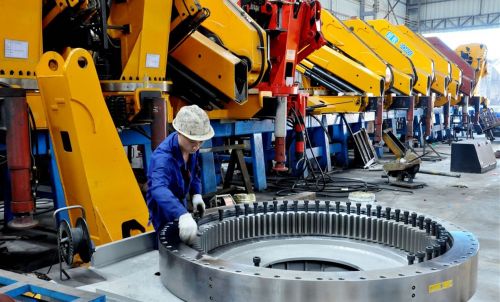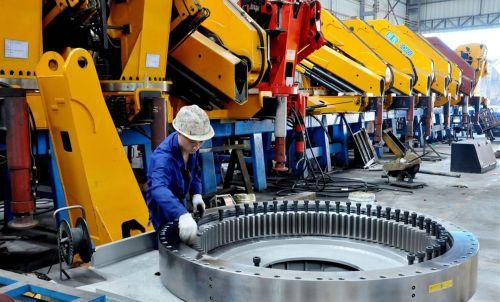
BEIJING, Dec. 31 (Xinhua) -- China's manufacturing sector expanded at a slower pace in December, official data showed Sunday.
The country's manufacturing purchasing managers' index (PMI) came in at 51.6 in December, decelerating from 51.8 in November, according to the National Bureau of Statistics (NBS).
A reading above 50 indicates expansion, while a reading below reflects contraction.
The index in December is on par with the annual average, still pointing to a strong resilience in China's growth, according to NBS senior statistician Zhao Qinghe.
Sub-indices for production and new orders came in at 54 and 53.4, respectively, down from 54.3 and 53.6 last month, but well above the boom-bust line of 50.
However, the sub-index of raw material inventory stood at 48 in December, down 0.4 percentage points from last month, indicating continuously decreasing raw material inventory in the manufacturing sector.
The sector employed less people as the sub-index of employment dropped 0.3 percentage points month on month to 48.5 in December.
Meanwhile, the sub-index of supplier deliveries declined 0.2 percentage points month on month to 49.3, showing a slower delivery by raw material suppliers.
Despite an overall slower expansion, the country's manufacturing PMI has been in positive territory for 17 months in a row.
The NBS data also showed that the country's non-manufacturing sector expanded faster in December, with non-manufacturing PMI came in at 55 in December, up from 54.8 in November.
The service sector, which accounted for more than half of the country's gross domestic product, continued steady growth, with the sector's business activity index standing at 53.4 in December, well above the boom-bust line of 50, although declining 0.2 percentage points month on month.
The new order index of the non-manufacturing businesses stood at 52 in December, up 0.2 percentage points from a month ago. In breakdown, the new order index for the service sector increased slightly slower month on month to 50.9, and that for the construction sector rose at a faster pace to 58.1.
"Early indicators for December show China's economy pushing into 2018 with growth steady, if unspectacular," said Tom Orlik, Bloomberg chief Asia economist, as "the official purchasing managers' indexes show the manufacturing sector slowing slightly and the non-manufacturing sector picking up, driven mainly by construction."
"Growth remains remarkably robust, underpinned by resurgent global demand, stimulus-boosted infrastructure spending, and a deleveraging program that remains more honored in the breach than the observance." Orlik said in a research note. Enditem




 A single purchase
A single purchase









